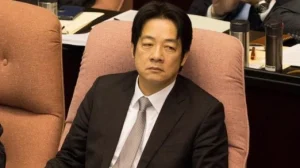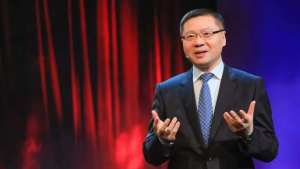Regarding Taiwan, Why Doesn’t the US Worry China?
Question:
Despite our shared hope for a peaceful resolution to the Taiwan issue, we must acknowledge that many Taiwanese are gravitating towards separatism. This trend began with the textbook reforms during Chen Shui-bian’s administration, which separated Taiwan’s history from China’s in official textbooks. Chen Shui-bian was succeeded by Tsai Ing-wen (DPP), who ruled for eight years, and now Lai Ching-te (DPP), known as the “Filial Grandson of Taiwan Separatism.”
How can China ensure the peaceful unification of Taiwan given the prospect of continued leadership by Taiwan’s Democratic Progressive Party (DPP) and its pursuit of Taiwan separatism? Additionally, the influence exerted by the US cannot be ignored.
Professor Zhang, you have suggested that the Taiwan issue can be left to the next generation. However, many people speculate that President Xi will seek to resolve the current situation during his presidency to leave a mark in history. What are your thoughts on this, Professor Zhang?
Professor Zhang Weiwei:
Have you considered another possibility? That Taiwan might not see another “presidential” election in the future with the unification of the motherland entering the fast lane. If you read closely Premier Li Qiang’s work report during this year’s “Two Sessions,” you would have seen a critical change on position towards Taiwan. While Beijing’s official narrative previously used “peaceful unification” when addressing Taiwan issue, it is now changed to “achieving the great cause of unification,” leaving out the word “peaceful.” This is a significant change, indicating that we are prepared for all sorts of contingencies.
In February, two fishermen from China’s Fujian province died under abnormal circumstances while being evacuated by the Taiwan authorities. The Chinese mainland responded by starting coast guard patrols and crossing the so-called “median line” between Xiamen and Kinmen. The area, formerly called the Xiajin Sea Area to indicate shared area, is no longer referred to as such by Beijing. It is now simply called the waters near Kinmen, where Chinese mainland patrols. I believe this practice will soon extend to Penghu (currently under Taiwan authority) and other Taiwanese regions.
I cannot stress enough that “Taiwan separatism” only respond to strength. For example, when our coast guard ships patrolled near Kinmen, they boarded a Taiwanese yacht to check its paperwork. This is an effective approach, as it sends a clear message to Taiwan separatists that we mean business. Similar measures will continue as the process of unification accelerates. We will take concrete actions, leaving fewer options for Taiwan separatists.
The choice between peaceful unification and unification by force is not clear-cut. Beijing has various tools in its toolbox that fall between peace and force, such as blockading Taiwan’s ports and airports. If the U.S. sends another House Speaker to Taiwan, we can block the Taipei airport, preventing the plane from landing without notifying the Civil Aviation Administration of China. If the U.S. continues its weapon sales to Taiwan, we can block the ports through which the weapons are transported. These measures fall between the simple duality of peaceful unification and unification by force.
The Chinese mainland has the support of 1.4 billion people and a toolbox with ample tools. The return of Taiwan cannot be delayed indefinitely. We are optimistic that the pace of unification will pick up soon. Our plans for high-speed rail to Taiwan are already mapped out, including the construction of tunnels, and the Chinese government is known for completing projects ahead of schedule. Your concerns are understandable, but the tide of Taiwan’s unification will not be turned by the separatists.
The recent fishermen incident has struck a nerve among Taiwan separatists, and stoked fears of unification by force. Some even proposed a “war tax” to raise funds in case of war. In a Taiwanese news report featuring street interviews, even supporters of DPP said they did not want war. It should serve as a wake-up call to the U.S., which hopes to turn Taiwan into another Ukraine by encouraging people to display “brave resistance.” The U.S. needs to realize that Taiwanese people don’t want war. If the People’s Liberation Army arrives, they might just surrender. This is the general trend.
Editor: Catherine Yang



